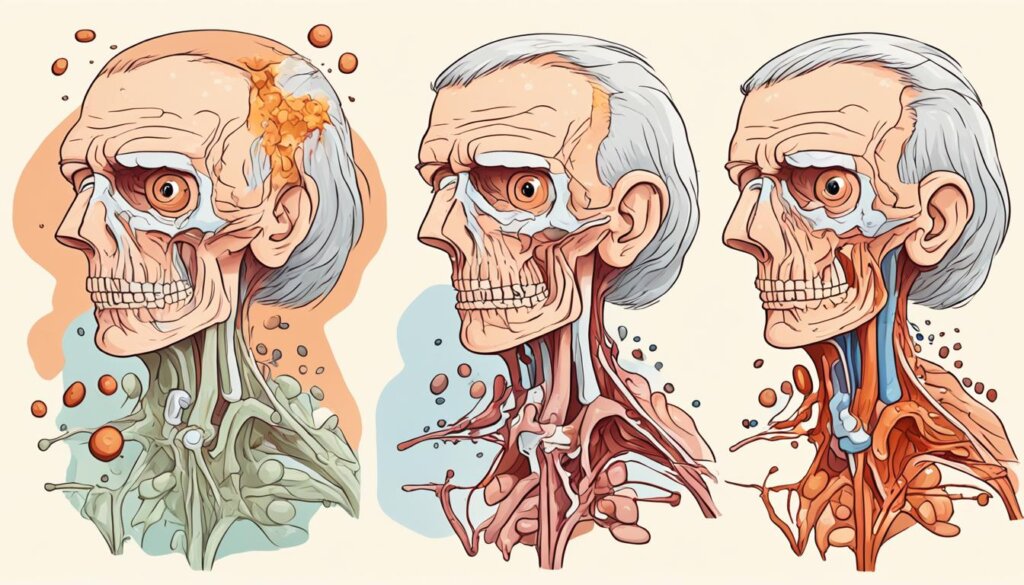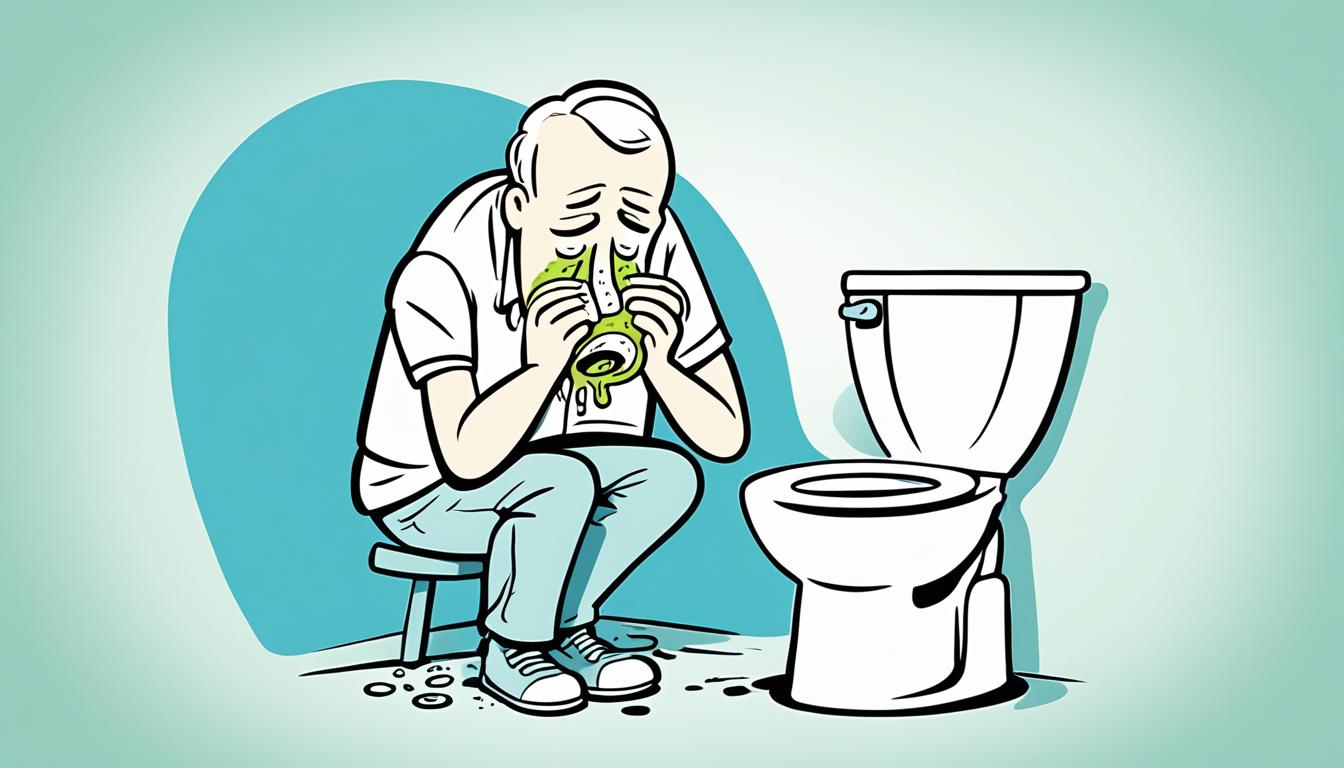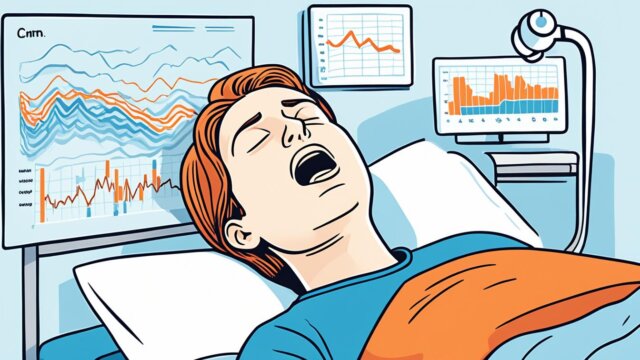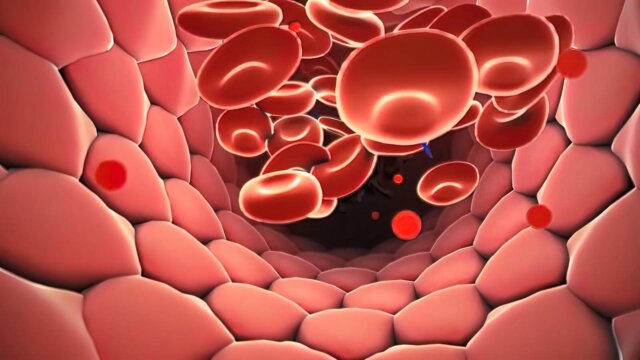FTC disclaimer: This post may contains affiliate links and we will be compensated if you click on a link and make a purchase.
Nausea and vomiting happen to a lot of people. Up to 90% of pregnant women and 90% of people with migraines feel it. Half to two-thirds of those with migraines also throw up. These symptoms can really affect your day, from morning sickness to motion sickness.
It’s important to know what causes them, how to prevent them, and how to treat them. This helps keep you healthy and feeling good.
Key Takeaways
- Nausea and vomiting have many causes, like being pregnant, sick, or having a chronic condition.
- Preventing and treating them depends on finding out why you’re feeling sick.
- Drinking plenty of water, eating right, and using medicines can help manage nausea and vomiting.
- If you’re throwing up a lot or it’s really bad, you should see a doctor to check for serious problems.
- Preventing nausea and vomiting by avoiding triggers and trying natural remedies can keep you healthy and happy.
Learning about nausea and vomiting can help you take charge of your health. You can deal with morning sickness, motion sickness, or a stomach bug better. This article will give you tips to handle these issues and feel better soon.
What is Nausea and Vomiting?
Definition and Symptoms
Nausea makes you feel sick in your stomach before you might vomit. Vomiting, or emesis, is when you throw up what’s in your stomach. These symptoms can happen alone or together and have many causes.
Many conditions can cause nausea and vomiting. If it’s bad, you might need fluids through a vein to stay hydrated. Pregnant women might feel better by eating crackers in the morning. They might also need a pregnancy test to figure out why they’re feeling sick.
If your stomach hurts a lot or you’re getting dehydrated, you should see a doctor fast. If you’re vomiting a lot or it’s bloody, you should get help right away. Signs you’re getting dehydrated include a dry mouth, not peeing often, or dark urine.
Most of the time, stomach bugs cause nausea and vomiting. You should go to the emergency room if you have chest pain, trouble breathing, bad stomach pain, or if you’re throwing up blood or green stuff. Call a doctor if you can’t drink anything for a day, have been vomiting for over two days, or feel sick for more than a month. If you’re dizzy, sweating, or losing weight without trying, you should see a doctor too.
“Nausea and vomiting can be a sign of many different underlying conditions, from simple stomach bugs to more serious illnesses. It’s important to pay attention to the severity and duration of these symptoms and seek medical care when necessary.”
Common Causes of Nausea
Nausea can come from many things, like pregnancy, being sick, motion sickness, and more. Morning sickness is a common type of nausea during pregnancy. It often goes away after 14 weeks. About 70% of pregnant people get nausea and vomiting, known as morning sickness.
Illness-Related Nausea
Being sick with a virus or bacteria can make you feel nauseous. Some stomach problems like gastritis or IBS can also cause nausea. Taking new medicines can make you feel nauseous too.
Motion Sickness and Other Causes
Inner ear issues like motion sickness can cause nausea. Migraines can also make you feel nauseous. Stress can make digestive problems worse and cause nausea. Thyroid issues can lead to nausea and vomiting. Feeling nauseous can be a sign of a heart attack, especially for women, with symptoms like chest pain and trouble breathing.
- Pregnancy (morning sickness)
- Viral or bacterial infections
- Gastrointestinal disorders
- Medication side effects
- Motion sickness and vestibular conditions
- Neurological conditions like migraines
- Mental health conditions
- Thyroid disorders
- Heart attack (especially in females)
Knowing what causes nausea is key to handling and preventing it.
Causes of Vomiting in Children
Children often throw up more than adults, for many reasons. Viral gastroenteritis is a top reason for sudden vomiting in kids. In babies, rotavirus often causes bad stomach flu. Older kids might get it from norovirus. Eating bad food can also make kids throw up. Plus, some things at home can be harmful if swallowed and cause vomiting.
Older kids can get motion sickness from traveling or doing certain activities. Some illnesses like appendicitis, meningitis, and diabetic ketoacidosis can make kids vomit. In babies, a blocked intestine or other issues can cause ongoing vomiting. Food allergies, like to cow’s milk, can also make young kids throw up.
If a kid vomits without diarrhea, it should stop in 24 hours. If it doesn’t, it could be serious. Cyclic vomiting often happens before kids get migraines. Pyloric stenosis is a common cause of vomiting in babies.
Vomiting can be mild or severe, and young kids are more at risk of getting dehydrated. Dehydration is a big worry, and a slow blood refill test can show if it’s there. If a child can’t wake up, won’t move, or seems very weak, get help right away.
To sum up, kids throw up for many reasons, from viruses and bad food to serious health issues. Quick doctor visits are key, especially for babies and if dehydration or other serious signs are there.
Causes of Vomiting in Adults
Vomiting is not common in adults but can happen for many reasons. Bacterial or viral infections, like gastroenteritis, are common causes. They usually get better in a few days. But, serious issues like appendicitis can cause vomiting and need quick medical help.
Other reasons for vomiting include chronic digestive problems like IBS and Crohn’s disease. These can cause vomiting often. Migraines, ear infections, and motion sickness can also make you feel sick and throw up.
Infections, Food Poisoning, and Chronic Conditions
Medicines, too much alcohol, kidney problems, bowel blockages, cancer treatments, and gallbladder issues can cause vomiting. Usually, vomiting doesn’t mean something serious is wrong. But, see a doctor if it keeps happening or gets worse.
Cause | Symptoms | Treatment |
|---|---|---|
Gastroenteritis | Nausea, vomiting, diarrhea | Hydration, rest, over-the-counter medications |
Appendicitis | Severe abdominal pain, vomiting | Emergency medical attention |
Migraines | Intense headaches, nausea, vomiting | Pain relief, anti-sickness medication |
Labyrinthitis | Nausea, vomiting, vertigo | Medication prescribed by a healthcare provider |
To manage vomiting at home, drink small amounts of water and have sweet drinks for taste. Ginger supplements or tea can also help. Always talk to a doctor if vomiting doesn’t stop or gets worse.
“Vomiting in adults can have a wide range of causes, from minor infections to more serious underlying conditions. Seeking prompt medical attention is crucial if symptoms are severe or do not improve within a few days.”
Knowing what causes vomiting in adults and getting the right medical care helps manage this issue. With the right treatment and care, most cases of vomiting in adults can be fixed without lasting problems.
Nausea and Vomiting from Lifestyle Choices
Some lifestyle choices can make you feel sick and throw up. Drinking too much alcohol can hurt your gut and mix badly with stomach acid, causing sickness. Also, eating too much or having eating disorders like bulimia can lead to feeling sick and throwing up a lot.
Alcohol, Overeating, and Eating Disorders
Drinking too much alcohol can hurt your gut and make you feel sick. It can even cause bleeding in your digestive tract. Eating disorders like bulimia make you throw up on purpose, which can also make you feel sick.
Eating too much can also make you feel sick and throw up. Eating big meals too often can put a strain on your stomach. Eating smaller meals more often can help you avoid feeling bad.
“Nausea and vomiting are common symptoms experienced by both children and adults, with pregnant women and individuals undergoing cancer treatments being particularly susceptible.”
Fixing the reasons behind nausea and vomiting from lifestyle choices is important. Getting help from a doctor and changing your habits can make you feel better.
Lifestyle Factor | Potential Impact on Nausea and Vomiting |
|---|---|
Alcohol Consumption | Can damage the gut lining and react with stomach acid, leading to nausea and vomiting. |
Overeating | Consuming large, infrequent meals can strain the digestive system and contribute to nausea and vomiting. |
Eating Disorders (e.g., Bulimia) | Intentional vomiting can induce recurrent nausea and vomiting due to altered eating habits and perceptions. |
Nausea and Vomiting as a Sign of Serious Illness
Nausea and vomiting can be simple stomach issues or signs of a serious illness. They might show up with heartburn, GERD, infections, or some medicines. If they keep happening or don’t have a clear cause, it could mean you have something serious like meningitis, appendicitis, concussion, brain tumor, or migraines.
Many things can make you feel nauseous or throw up. This includes acute gastritis, stomach problems, bowel blockages, and brain pressure. Stomach flu and food poisoning are common reasons. For pregnant women, morning sickness from hormonal changes is a common cause.
If you have nausea or vomiting with heart attack signs, severe pain, high fever, stiff neck, or symptoms over 24 hours, get help right away. Not getting help can lead to dehydration, malnutrition, and kidney issues, needing IV fluids.

Not all nausea and vomiting are just minor issues. If they keep up or come with other worrying signs, see a doctor. They can check for serious problems and help you get the right treatment.
“Seek immediate medical help if experiencing nausea alongside heart attack symptoms or signs of severe ailments.”
When to Seek Emergency Care
Nausea and vomiting are common but can mean something serious. Knowing when to get emergency care is key. Ignoring these signs can lead to severe dehydration or worse.
Warning Signs in Children and Adults
If you or your child vomits for over a week, see a doctor. Also, go to the emergency room if you have a bad headache, stiff neck, or feel confused. Blood in your vomit, a fast heartbeat, or a fever over 102°F are also reasons to seek help.
Children under 6 need quick help for ongoing vomiting and diarrhea, or if they show dehydration signs or a fever over 100°F.
Dehydration is a big worry, especially for kids, and can happen fast with lots of vomiting. If you see these signs, get emergency care right away. Quick action can stop serious problems and help you get better fast.
“Ignoring warning signs of nausea and vomiting could lead to severe dehydration or other potentially life-threatening complications.”
It’s always best to be safe when it comes to your health or your child’s. Knowing when to get emergency help can stop more serious issues. This way, you can find out what’s causing it and avoid more problems.
Nausea and Vomiting: Causes, Treatment and Prevention
Nausea and vomiting can be tough symptoms with many possible causes. Sometimes, vomiting is just a short episode that goes away in a few days. But, it can also mean there’s a serious health issue. It’s important to know the causes, treatments, and ways to prevent these problems.
Many things can make you feel nauseous or vomit, like food poisoning or motion sickness. Being pregnant, taking certain medicines, or eating too much alcohol can also cause it. Conditions like Crohn’s disease or migraines can make you feel sick all the time.
How you treat nausea and vomiting depends on what’s causing it. Home remedies like ginger or eating small meals can help. For worse cases, doctors might prescribe medicines like promethazine. If you keep vomiting, you should see a doctor to find out why.
To avoid feeling sick, try eating smaller meals and avoiding foods that make you feel bad. Drinking plenty of water and not drinking too much alcohol is also key.
Knowing what causes nausea and vomiting helps you deal with it better. By using the right treatments and prevention tips, you can feel better and stay healthy.

Cause | Symptoms | Treatment |
|---|---|---|
Viral Gastroenteritis | Vomiting, diarrhea, abdominal cramps | Oral rehydration, rest, anti-nausea medication |
Food Poisoning | Vomiting, diarrhea, abdominal pain | Oral rehydration, rest, anti-nausea medication |
Motion Sickness | Nausea, dizziness, vomiting | Medications, ginger, avoiding triggers |
Pregnancy (Morning Sickness) | Nausea, vomiting, especially in the morning | Dietary changes, anti-nausea medication |
Chronic Conditions (IBS, Crohn’s) | Persistent nausea, vomiting, abdominal pain | Dietary changes, medications, addressing underlying condition |
“Nausea and vomiting can be a sign of a more serious underlying condition, so it’s important to seek medical attention if symptoms persist or worsen.”
Understanding causes, getting the right treatment, and preventing it can help you manage nausea and vomiting. This can make you feel better and improve your health.
If you’re vomiting a lot or it doesn’t stop, get help right away. This could mean there’s a serious issue.
At-Home Remedies for Nausea Relief
When you’re feeling nauseous, there are ways to help yourself at home. Drinking plenty of water and changing your diet can make you feel better.
Hydration and Diet Changes
Drinking clear liquids like water, herbal tea, or drinks with electrolytes can calm your stomach. Stay away from fatty, spicy, or heavy foods. Instead, eat things like bananas, rice, applesauce, crackers, or baked potatoes.
Natural Remedies
- Ginger is great for nausea and vomiting, especially during pregnancy or chemotherapy.
- Peppermint can lessen nausea from chemotherapy. It works well for people with irritable bowel syndrome and cancer patients.
- Cinnamon helps with nausea from menstrual pain, as shown in a 2015 study.
- Inhaling lemon essential oil can cut nausea by 9% in pregnant women.
- Breathing exercises and progressive muscle relaxation (PMR) help reduce nausea and vomiting from chemotherapy.
- Acupressure and acupuncture ease nausea in those with chemotherapy or post-op nausea.
If nausea lasts more than 2-3 days or comes with other symptoms like fever, stomach pain, or trouble breathing, see a doctor.
“Staying hydrated and making dietary adjustments can be effective in managing nausea.”
Preventing Nausea and Vomiting
To help prevent nausea and vomiting, make some simple changes in your life. Eat smaller meals often instead of big ones. Avoid foods and smells that make you feel sick. Also, try not to move too much after eating to lower the chance of vomiting. Drink water often to stay hydrated, as not having enough water can make nausea and vomiting worse.
If you get motion sickness, sitting facing forward in a vehicle helps. Taking over-the-counter drugs like dimenhydrinate or meclizine can also help. For pregnant women, eating a snack with a lot of protein before bed or crackers in the morning might ease morning sickness.
Some natural ways to fight nausea and vomiting include ginger supplements, fennel tea, and using scents like peppermint. But, talk to a doctor before trying new treatments, especially if you have health issues or take other medicines.
If you or your child throws up three or more times a day, call your doctor. Vomiting a lot could mean a serious health issue and needs a doctor’s check-up.

Using these nausea prevention strategies and paying attention to your body can help you avoid and manage nausea and vomiting. Always drink plenty of water, listen to what your body tells you, and get medical help if your symptoms don’t get better or get worse.
Medical Treatment Options
When home remedies don’t work, doctors may suggest medical treatments for nausea and vomiting. These treatments help control symptoms and prevent serious problems from vomiting too much.
Prescription Medications and Rehydration Solutions
Doctors often start with anti-nausea medications to fight nausea and vomiting. These can include serotonin (5-HT3) blockers, NK-1 blockers, steroids, olanzapine, and benzodiazepines. Serotonin (5-HT3) blockers are best taken before and during chemotherapy. NK-1 blockers are great for stopping delayed nausea and vomiting. Steroids like Dexamethasone work well with other medicines to fight nausea. Olanzapine is also used to help with nausea and vomiting, especially with other treatments.
For severe or ongoing vomiting, rehydration solutions might be needed. These solutions help replace lost fluids and electrolytes, preventing dehydration. They help the body get back in balance and aid in recovery.
If regular anti-nausea medicines don’t work, doctors might look at other options. This could include phenothiazines, metoclopramide, haloperidol, and cannabinoids. The choice depends on the cause of the nausea and vomiting, and the patient’s health history and how they react to treatments.
“Effective management of nausea and vomiting is crucial for improving patient comfort and quality of life, especially in the context of serious illnesses or treatments like chemotherapy.”
Treatment | Effectiveness |
|---|---|
Serotonin (5-HT3) antagonists | Work best when taken on a scheduled basis before and during chemotherapy |
NK-1 receptor antagonists | Most effective in preventing delayed nausea and vomiting |
Steroids (Dexamethasone) | Commonly used in combination with other anti-emetic medicines to enhance effectiveness |
Olanzapine | Shown to be effective in managing nausea and vomiting, especially when combined with other anti-nausea and vomiting medicines |
Complications of Persistent Vomiting
Chronic vomiting can cause serious health issues like dehydration, malnutrition, and tooth enamel damage. These problems are a big worry for kids who can’t tell us how they feel. It’s key to get medical help fast to stop these serious issues.
Dehydration is a big concern with ongoing vomiting. It happens when you lose too much fluid and electrolytes, and can even need a hospital stay. Also, using marijuana a lot can lead to a condition called cannabis hyperemesis syndrome, which also causes dehydration.
Long-term vomiting can make you malnourished because your body can’t get the nutrients it needs. This can make your hair, nails, and teeth weak. The acid in vomit can also harm your tooth enamel, making dental problems more likely.
To stop these problems, we need to find out why you’re vomiting and fix it. Some steps you can take, like avoiding certain foods and sleeping well, can lessen how often and how bad it gets.
“Persistent vomiting can lead to serious complications, including dehydration, malnutrition, and weakening of the hair, nails, and tooth enamel. Seeking prompt medical attention is essential to prevent these potentially life-threatening consequences.”

Key Takeaways
- Persistent vomiting can lead to dehydration, malnutrition, and tooth enamel erosion.
- Dehydration from vomiting can be especially dangerous in children.
- Chronic marijuana use can contribute to a condition called cannabis hyperemesis syndrome, which can also cause dehydration.
- Preventive measures, such as avoiding trigger foods and maintaining regular sleep patterns, can help manage the frequency and severity of vomiting episodes.
Knowing about the risks of vomiting and getting help when you need it can protect your health and stop worse problems.
Nausea and Vomiting as COVID-19 Symptoms
COVID-19 often causes fever, cough, and shortness of breath. But, it can also affect the digestive system, leading to nausea and vomiting. Sometimes, these digestive issues are the only signs of the infection, especially in mild cases.
More than 1 in 5 people with COVID-19 (22.4%) first notice a GI symptom. Nausea, vomiting, and stomach pain are common in up to 61.7% of cases. Some people may have GI symptoms without any respiratory issues.
Nausea and vomiting from COVID-19 usually go away in 12 to 24 hours. But, feeling nauseous can last for weeks or months in some, showing signs of long COVID. In kids, vomiting could be an early sign of COVID-19, even if other symptoms are mild.
There’s not enough proof to say nausea and vomiting mean a higher risk of COVID-19 complications. But, see a doctor if symptoms are severe, bloody, or with other worrying signs like trouble breathing or weakness. For nausea and vomiting from COVID-19, try rest, staying hydrated, and eating regularly. You can also use over-the-counter pain relievers and anti-inflammatory drugs.
Even if you test negative for COVID-19, stress from the virus can cause nausea and vomiting. Mental health problems like anxiety and sadness can also make GI symptoms worse in people with long COVID.
If you have ongoing nausea, vomiting, or other digestive problems, see a healthcare provider. They can figure out the cause and help you get the right treatment. Regular blood tests and monitoring can also help find any health issues that might be causing your symptoms.
Conclusion
Nausea and vomiting are common problems with many causes. These include pregnancy and motion sickness to infections and chronic illnesses. Knowing the cause is important for managing symptoms and avoiding serious issues.
There are many ways to treat and prevent nausea and vomiting. These include home remedies, changing your diet, taking medicine, and seeing a doctor if symptoms don’t get better. Finding and fixing the cause can help you feel better and stay healthy.
If you have nausea or vomiting, it’s good to know what to do and talk to your doctor. By being proactive and understanding your treatment options, you can improve your digestive health. This can make your life better overall.
FAQ
What is the difference between nausea and vomiting?
Nausea makes you feel sick in your stomach before you might vomit. Vomiting is when you throw up the food in your stomach through your mouth.
What are some common causes of nausea?
Many things can make you feel nauseous. These include being pregnant, having a virus or bacteria, feeling sick from moving, or being stressed. Bad smells, food poisoning, and some stomach problems can also cause it. Gallbladder issues are another common cause.
What causes vomiting in children?
Kids often throw up more than adults. It can be from viruses, food poisoning, or feeling very sick from moving. Coughing a lot, having a high fever, or eating too much can also cause it. Babies might throw up if something is blocking their intestines.
What are some common causes of vomiting in adults?
Adults usually don’t vomit often. But if they do, it’s often from a bug or virus, food poisoning, or a long-term stomach problem. Conditions like irritable bowel syndrome can also make them throw up a lot.
How can lifestyle choices increase the risk of nausea and vomiting?
Drinking a lot of alcohol can hurt your stomach and make you feel sick. Eating too much or having eating disorders can also make you throw up a lot.
When should I seek emergency medical care for nausea and vomiting?
Get help right away if you’re throwing up a lot for more than a week or if you have a bad headache, stiff neck, or feel confused. If you see blood in your vomit, have a fast heartbeat, or a fever over 102°F, seek help fast. For kids under 6, get help right away if they keep throwing up and have diarrhea, throw up a lot, or have signs of dehydration or a fever over 100°F.
How can I relieve nausea at home?
To feel better, drink clear, cold liquids and eat light, bland foods. Avoid eating greasy or spicy foods and rest after eating. Ginger tea or peppermint might also help calm your stomach. Drinking plenty of water and changing what you eat can help too.
How can I prevent nausea and vomiting?
Eat small, frequent meals and avoid strong smells. Don’t move around too much after eating and drink water all day. For motion sickness, sit facing forward and take medicine as needed. Pregnant women might find eating a snack before bed or crackers before getting up helps with morning sickness.
What medical treatments are available for nausea and vomiting?
If home remedies don’t work, doctors might give you medicine like promethazine or ondansetron. For severe vomiting, you might need fluids to replace what you lost and prevent dehydration.
What are the complications of persistent vomiting?
Vomiting a lot can lead to dehydration, not getting enough nutrients, and weak hair, nails, and teeth. Dehydration is very serious in kids because they can’t tell you how they feel.
Can nausea and vomiting be a symptom of COVID-19?
Yes, feeling sick to your stomach and throwing up can be signs of COVID-19. The virus can affect your stomach as well as your lungs. Some people with COVID-19 might only have stomach symptoms like nausea and vomiting.








